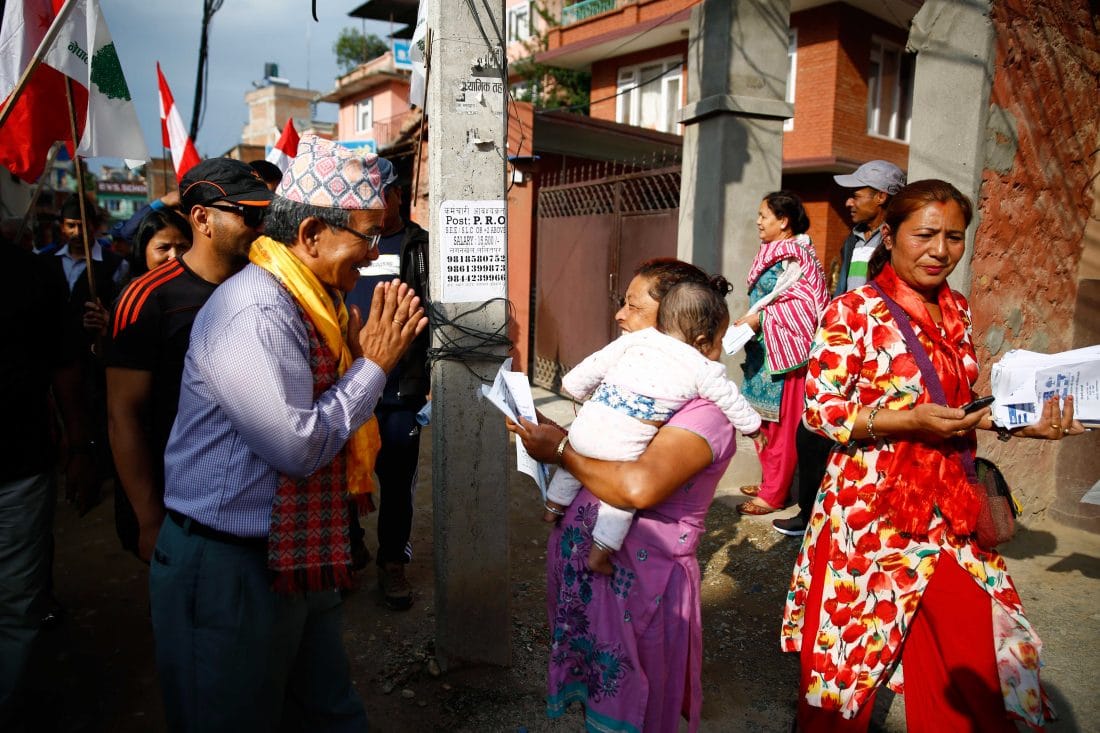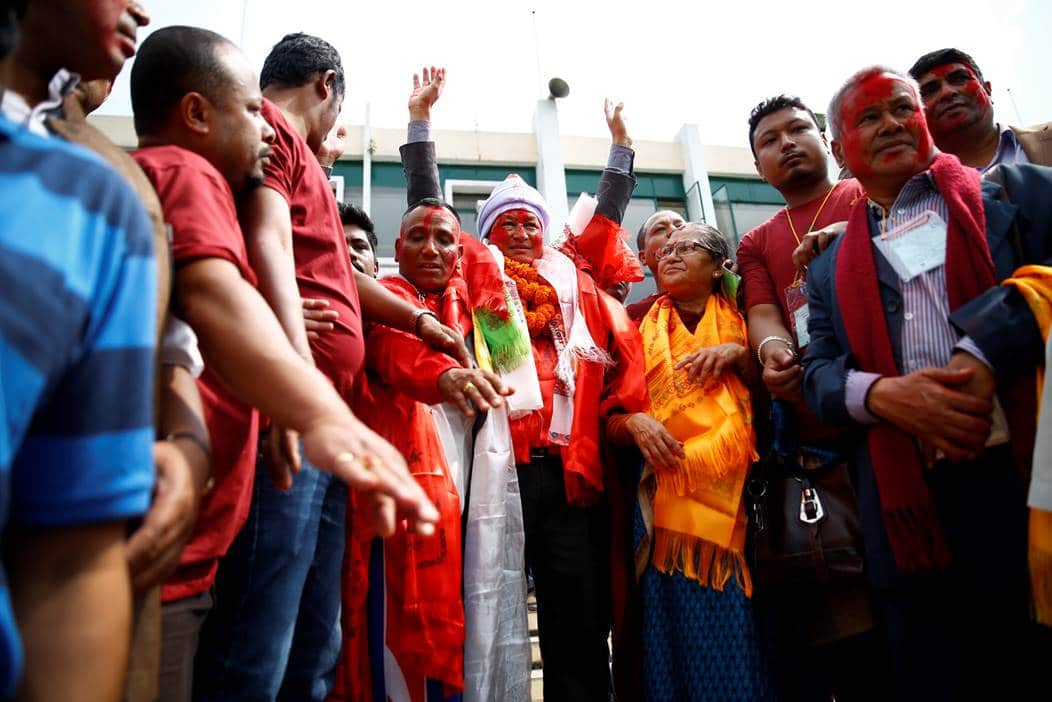By Namit Wagley Asia Foundation
In January, after months of uncertainty, political instability, and back-channel negotiations, Nepal announced that the next round of local elections will take place on May 13. It’s an historic moment for Nepal: having completed their first term, local governments created by the constitutional transition to federalism in 2017 will now be renewed by timely elections.
In many ways, this first term was a mixed bag. After two decades of political disarray, the arrival of newly elected representatives in 2017 was an unprecedented opportunity to chart a new course toward responsive and effective governance and to steer the country toward economic prosperity. On the one hand, the new federal system has gradually earned political legitimacy, and the country has avoided renewed, large-scale violence since 2017. On the other hand, issues of inefficiency, collusion, and corruption have persisted.
While it will probably take three or four election cycles, significant reform efforts, and much more effective intergovernmental coordination to make federalism fully functional at all levels, the coming round of local elections is a step in the right direction.
So, let’s look at a few of the challenges and opportunities facing Nepal at this historic juncture.

Campaigning in 2017 (Photo: Skanda Gautam / Himalayan Times)
First, for the next two or three years Nepal will continue to struggle with the long-term effects of the pandemic, including a deeply damaged economy, widespread job losses, deepening poverty, dwindling revenues and remittances, and growing demands on health and welfare services. Effective government will be extremely important, and timely local elections will stop the vicious cycle of uncertainty and political instability.
But these pandemic challenges are exacerbating some of Nepal’s preexisting struggles to operationalize the nation’s new federal system. The landmark 2015 constitution federalized the country with very little preparation. Elections in 2017 installed 753 newly created local governments, seven new provincial governments, and a newly configured national government, but without the nuts-and-bolts legal frameworks necessary to start governing. While the national government made efforts to patch these holes, it was quickly overwhelmed by the sheer scale of the roll-out effort and a rising tide of political contestation surrounding overlapping jurisdictions and the details and definitions of federalism. As local governments have become more organized and assertive, the need for cooperation between the federal, provincial, and local levels of government has only increased.
As the country now gears up for its second round of local elections, the mechanisms of intergovernmental coordination need to be strengthened. This is an important time to invest in evidence-based approaches that can provide concrete information about the realities on the ground and inform the discourse among the local, provincial, and national levels of government.
Second, the Covid-19 pandemic hit Nepal when the political transition was still quite young. As already noted, government revenues are down, and the demand for healthcare services is soaring. The coming elections will be costly, putting further pressure on government budgets and diverting resources from other critical governance needs such as building institutional capacity, strengthening the organs of accountability, and continuing the implementation of federalism.
At the same time, the challenge of pursuing gender, disability, and social inclusion in this time of crisis has become increasingly evident. Even a cursory analysis of the 2017 local election results shows that Nepali women’s participation in leadership and decision-making is littered with challenges. As a new crop of elected local leaders assume their responsibilities, there is a window of opportunity for governance-reform initiatives to renew Nepal’s commitment to gender equality and inclusive governance.
Third, the integrity of these elections will have national and regional security implications given the diverse geopolitical interests in Nepal. Although the local elections of 2017 were largely seen as free and fair, the Election Commission and international development partners noted some shortcomings such as frequent disregard of the election code of conduct, inconsistent adherence to campaign finance rules, some election violence, lack of voter education, widespread misinformation on social media, and preventive detention of journalists.
As in the past, Nepal will invite local and international development partners to help support the administration of free and fair elections. The 2017 elections highlighted areas in need of attention, but it will be important to maintain an approach of nonpartisan, impartial facilitation in Nepal’s shrinking civic space. The upcoming elections also present an opportunity to use new technology to permit voting by the estimated three million Nepalis living and working abroad. Remittances from these previously excluded voters, roughly 10 percent of the nation’s population, account for a quarter of Nepal’s annual GDP.

Bidya Sundar Shakya after being elected mayor of Kathmandu in the first phase of Nepal’s local elections in 2017.
Fourth, the coming elections will usher in a new cohort of leaders with varying degrees of experience and competence. In 2017, a political vacuum of nearly two decades was filled by an influx of new local representatives who were often inexperienced, especially women and people from disadvantaged communities whose seats were reserved under provisions of the constitution. Along with the advent of an unfamiliar federal structure, this transition exposed radically disparate capabilities in the “how-to” of governing. While some elected representatives exhibited exceptional ability to negotiate, build institutions, and govern effectively, others struggled to understand their roles and responsibilities, tackle entrenched collusion, and set policy agendas.
After five years of coping with these practical realities, the government and its development partners now have both the experience and the opportunity to design a leadership development program that meets the differing needs of elected representatives based on factors such as their accrued political power, electoral experience, age, gender, literacy, and access to information.
Finally, Nepal’s newly formed local governments faced their biggest challenge with the onset of Covid-19 in March 2020. After the country imposed a nationwide lockdown, it fell to the subnational governments to institute welfare programs, set up quarantine facilities, regulate the movement of goods and vehicles, protect local businesses, fortify public healthcare services, and maintain local security. Many of the 753 local governments were unprepared to confront a crisis of this scale. Yet, despite the unprecedented circumstances, many performed quite well, exhibiting accountable, democratic behavior. Barely three years after their genesis, Nepal’s subnational governments, by and large, held steady during the crisis.
But Nepal’s long-term response to the massive earthquakes of 2015 is a cautionary tale of inept crisis management and planning that was too often reactive rather than forward looking. As the pandemic rages on in Nepal and around the world, the second round of local elections is a golden opportunity to consolidate the lessons of the federal experiment and take forward-looking action to protect the safety and integrity of the political process and better equip the nation’s elected representatives at every level to manage a crisis that may be far from over.
Namit Wagley is the deputy program director for subnational governance programs for The Asia Foundation in Nepal. He can be reached at [email protected]. The views and opinions expressed here are those of the author, not those of The Asia Foundation.
